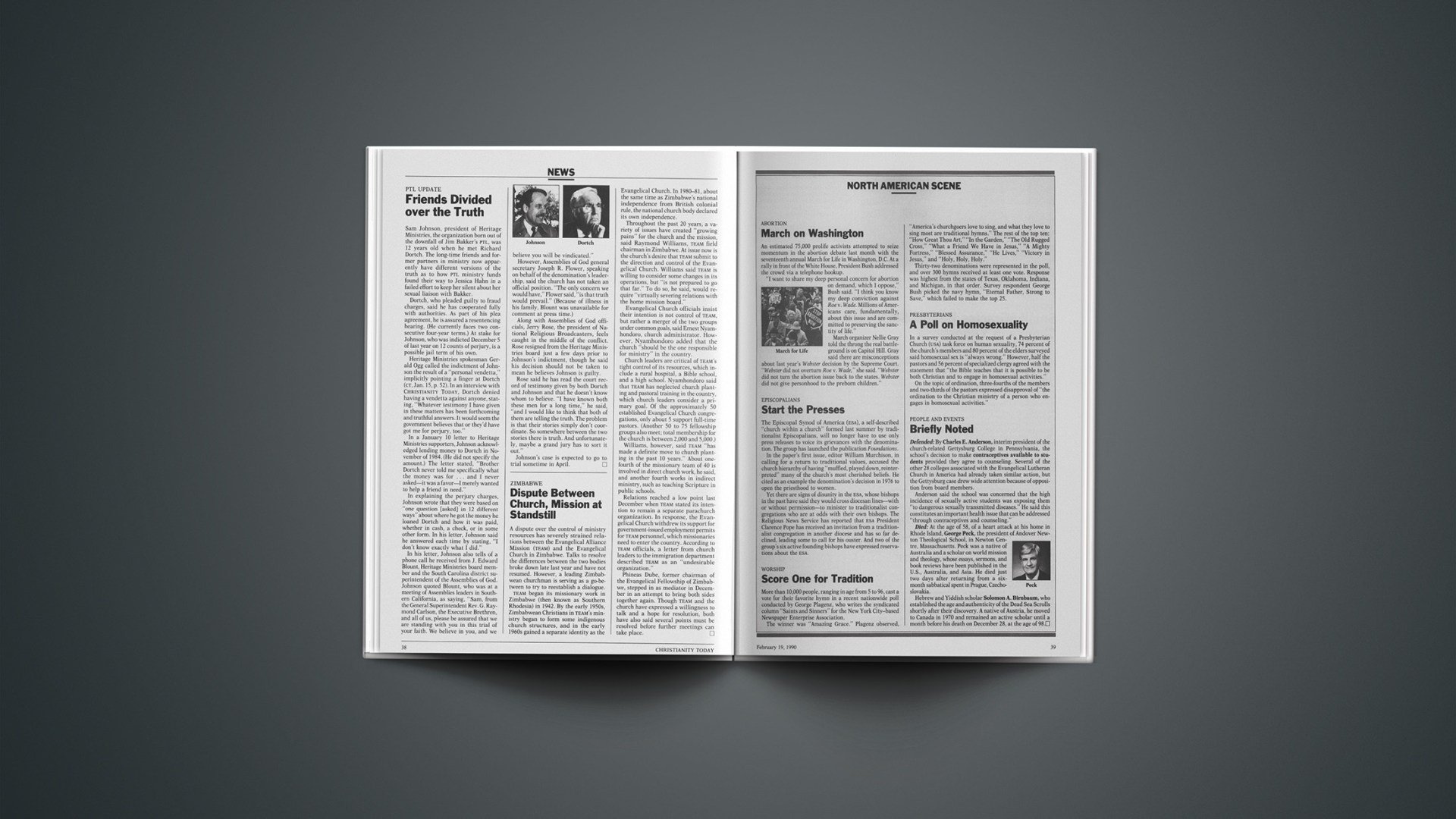A dispute over the control of ministry resources has severely strained relations between the Evangelical Alliance Mission (TEAM) and the Evangelical Church in Zimbabwe. Talks to resolve the differences between the two bodies broke down late last year and have not resumed. However, a leading Zimbabwean churchman is serving as a go-between to try to reestablish a dialogue.
TEAM began its missionary work in Zimbabwe (then known as Southern Rhodesia) in 1942. By the early 1950s, Zimbabwean Christians in TEAM’s ministry began to form some indigenous church structures, and in the early 1960s gained a separate identity as the Evangelical Church. In 1980–81, about the same time as Zimbabwe’s national independence from British colonial rule, the national church body declared its own independence.
Throughout the past 20 years, a variety of issues have created “growing pains” for the church and the mission, said Raymond Williams, TEAM field chairman in Zimbabwe. At issue now is the church’s desire that TEAM submit to the direction and control of the Evangelical Church. Williams said TEAM is willing to consider some changes in its operations, but “is not prepared to go that far.” To do so, he said, would require “virtually severing relations with the home mission board.”
Evangelical Church officials insist their intention is not control of TEAM, but rather a merger of the two groups under common goals, said Ernest Nyamhondoro, church administrator. However, Nyamhondoro added that the church “should be the one responsible for ministry” in the country.
Church leaders are critical of TEAM’s tight control of its resources, which include a rural hospital, a Bible school, and a high school. Nyamhondoro said that TEAM has neglected church planting and pastoral training in the country, which church leaders consider a primary goal. Of the approximately 50 established Evangelical Church congregations, only about 5 support full-time pastors. (Another 50 to 75 fellowship groups also meet; total membership for the church is between 2,000 and 5,000.)
Williams, however, said TEAM “has made a definite move to church planting in the past 10 years.” About one-fourth of the missionary team of 40 is involved in direct church work, he said, and another fourth works in indirect ministry, such as teaching Scripture in public schools.
Relations reached a low point last December when TEAM stated its intention to remain a separate parachurch organization. In response, the Evangelical Church withdrew its support for government-issued employment permits for TEAM personnel, which missionaries need to enter the country. According to TEAM officials, a letter from church leaders to the immigration department described TEAM as an “undesirable organization.”
Phineas Dube, former chairman of the Evangelical Fellowship of Zimbabwe, stepped in as mediator in December in an attempt to bring both sides together again. Though TEAM and the church have expressed a willingness to talk and a hope for resolution, both have also said several points must be resolved before further meetings can take place.










